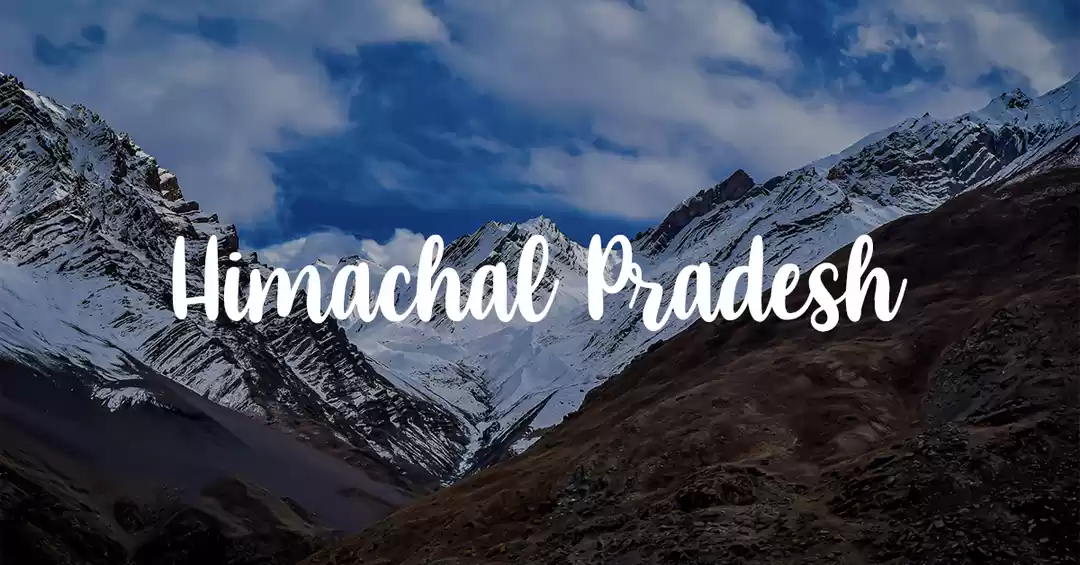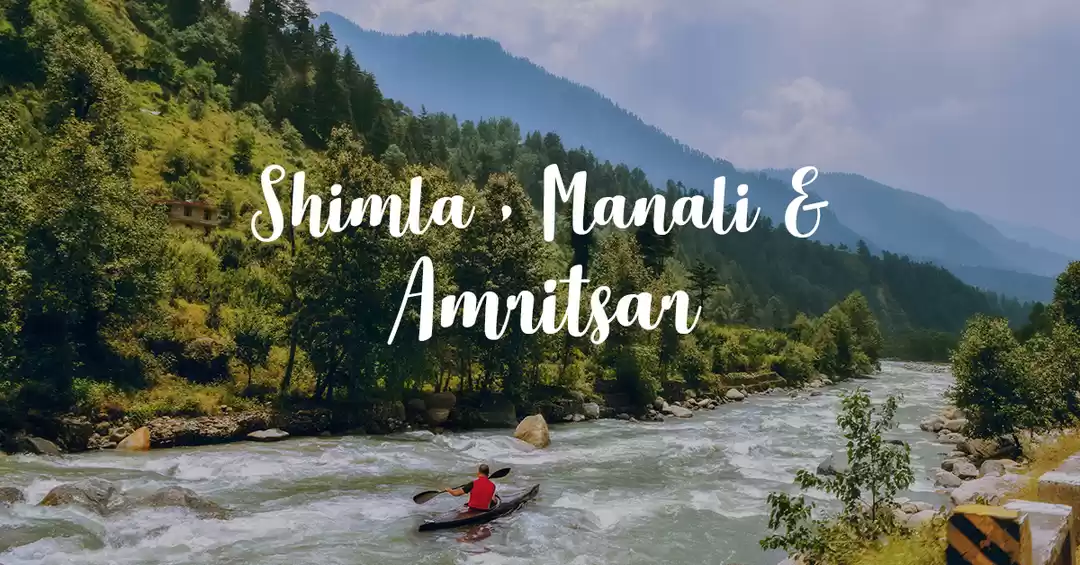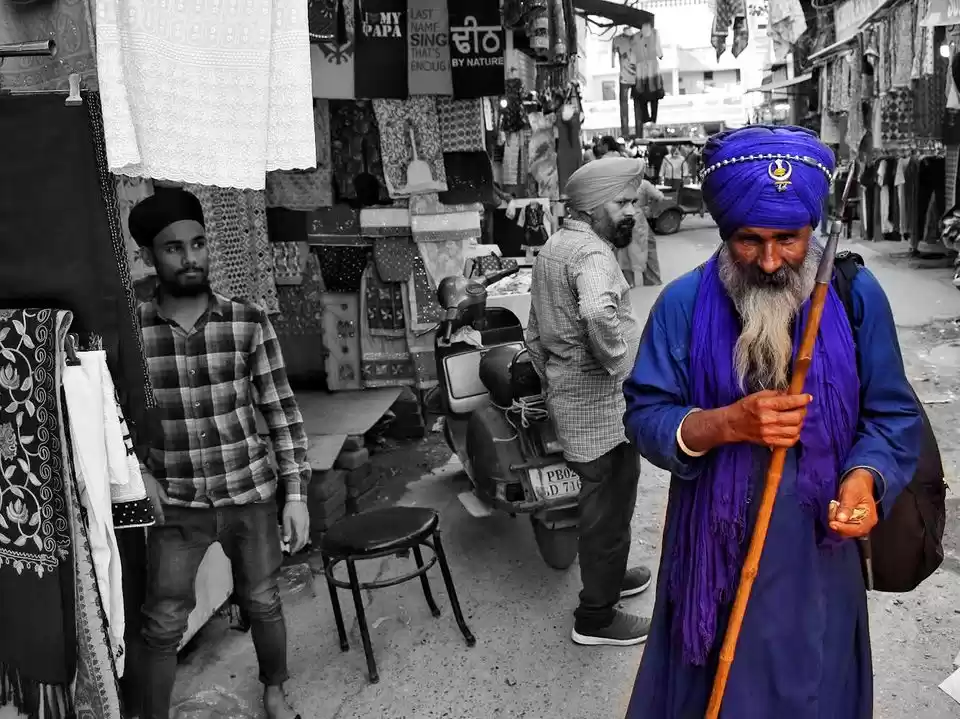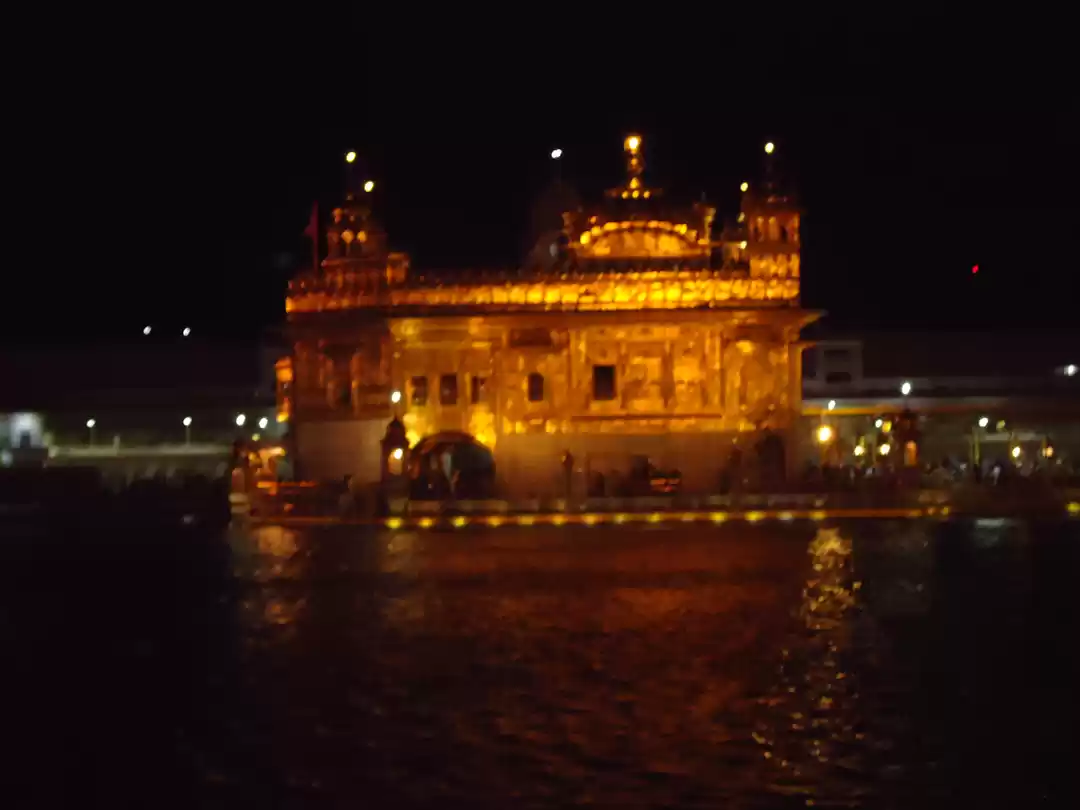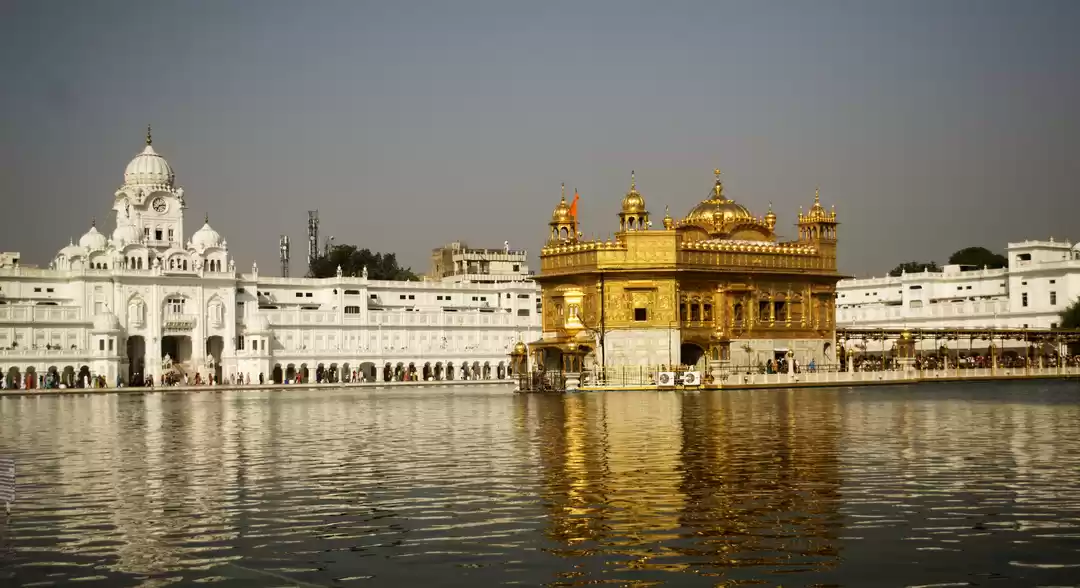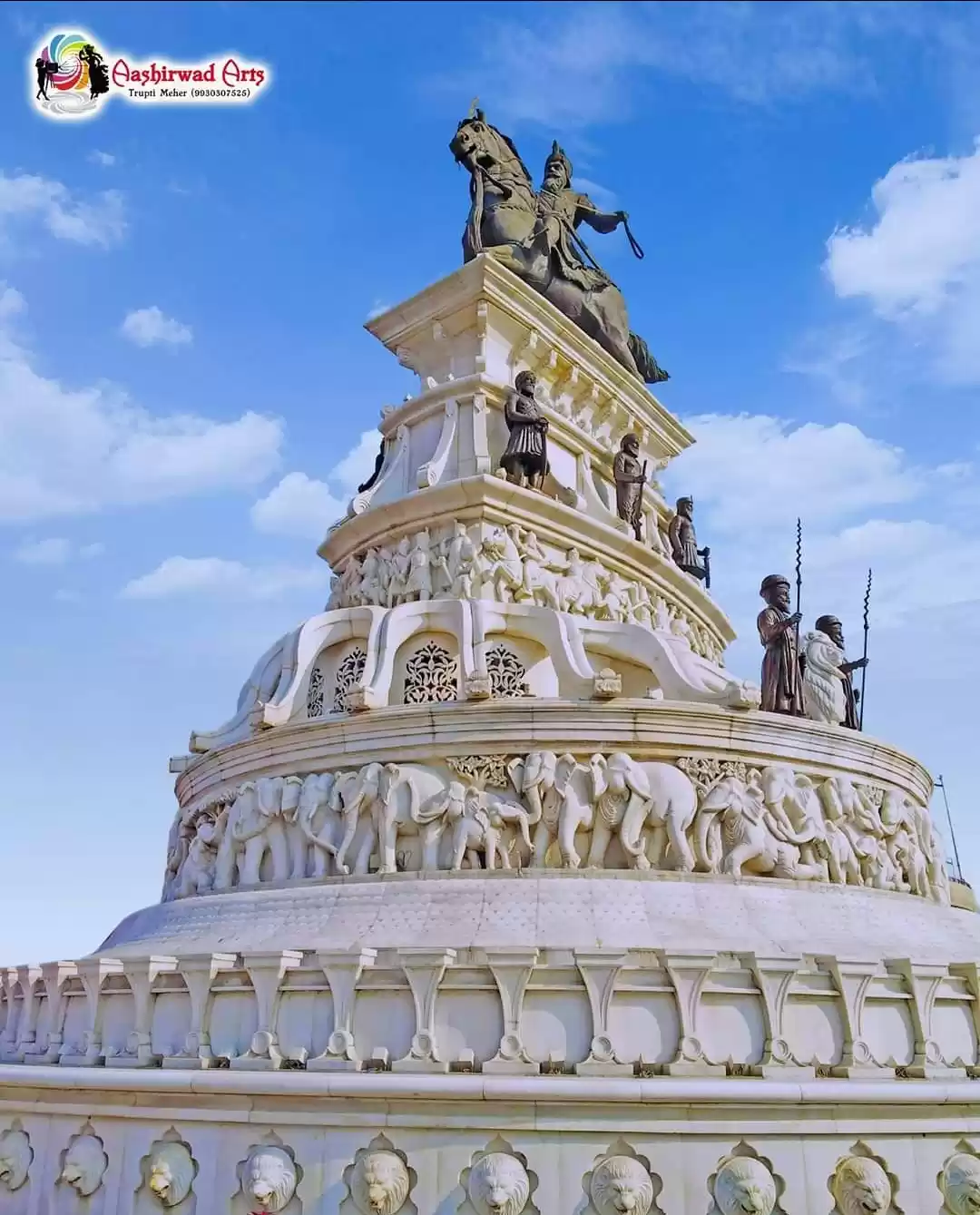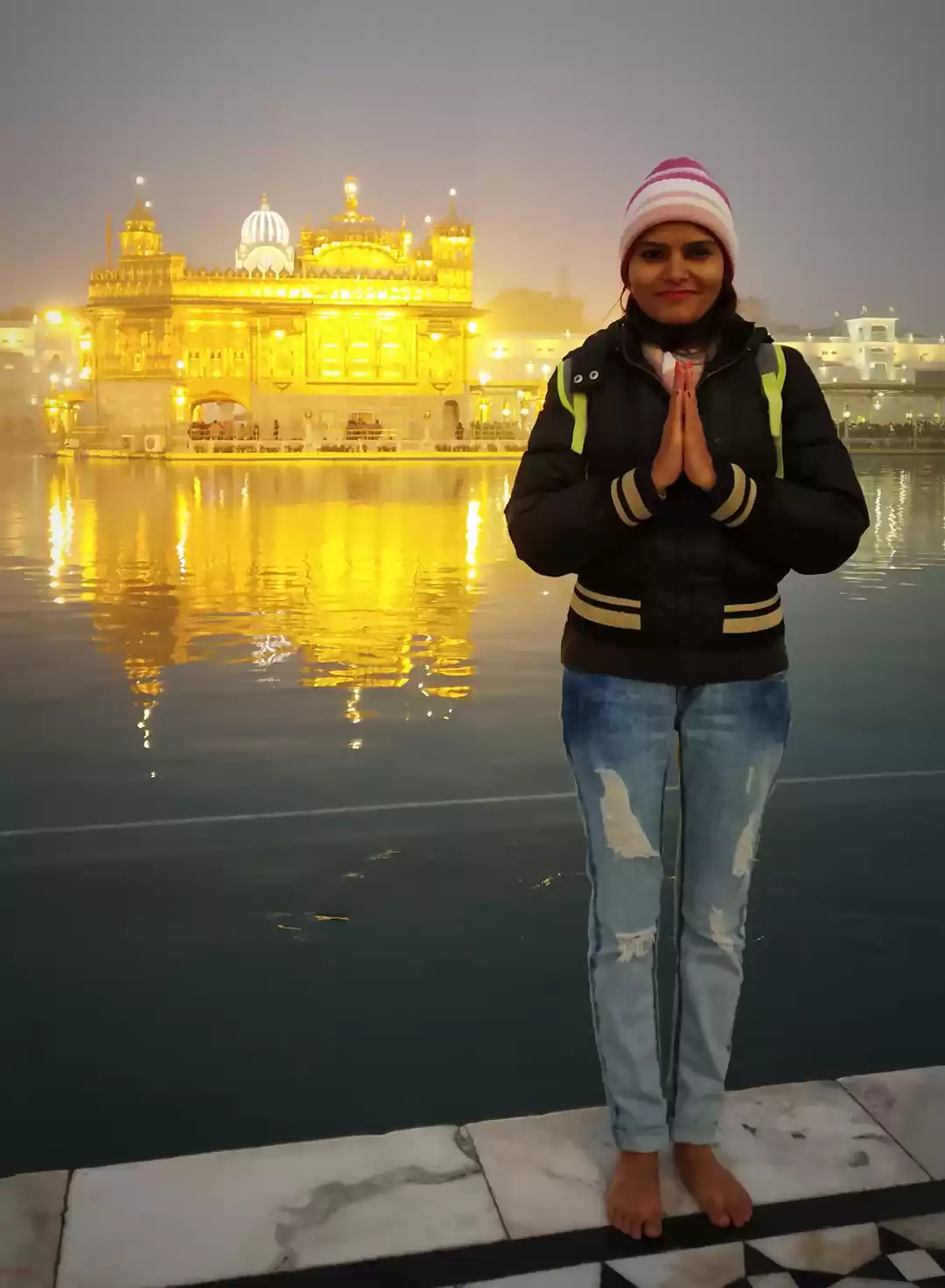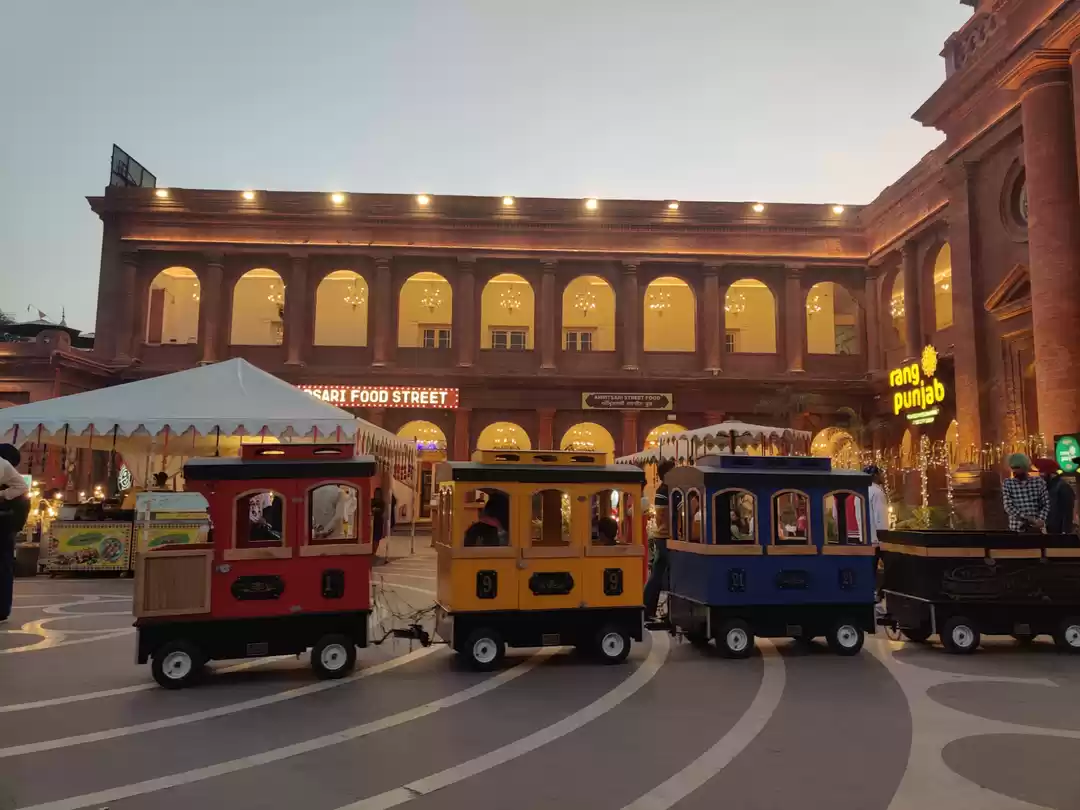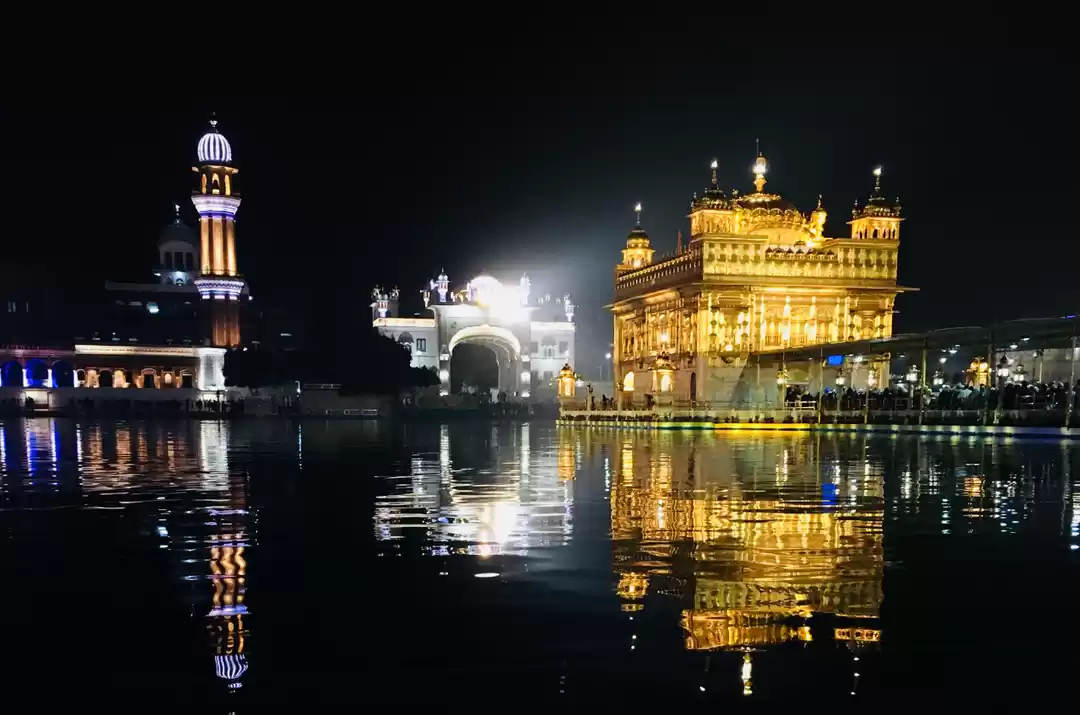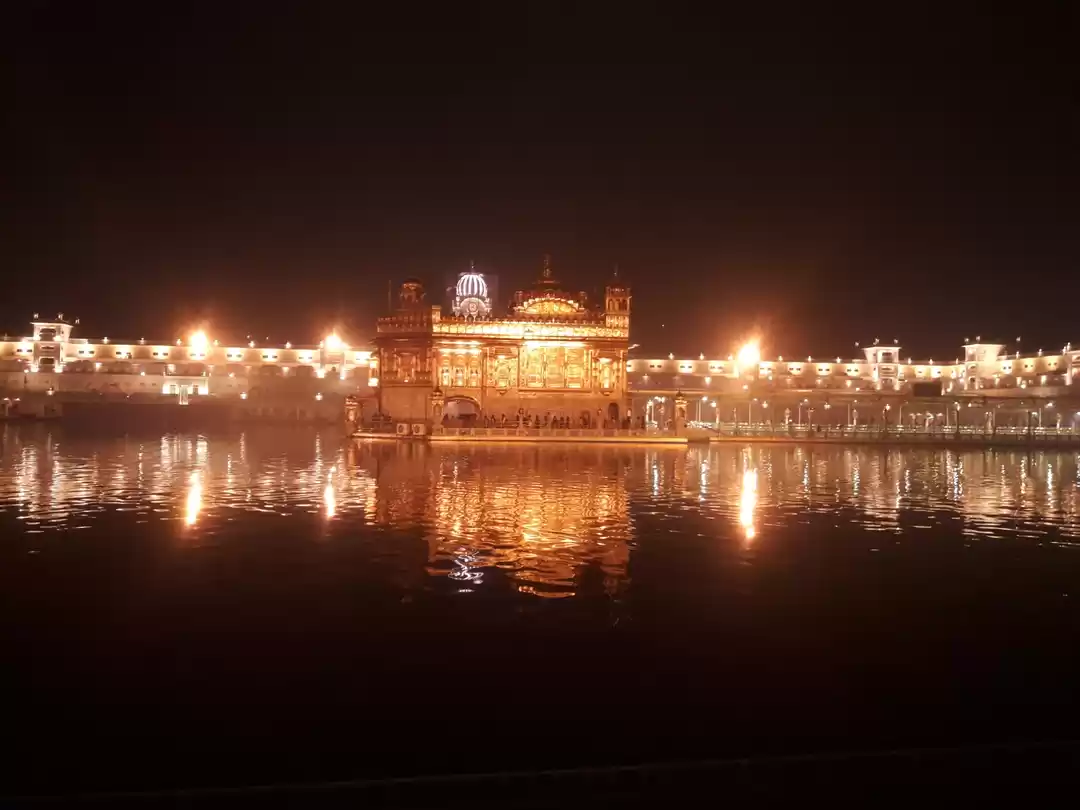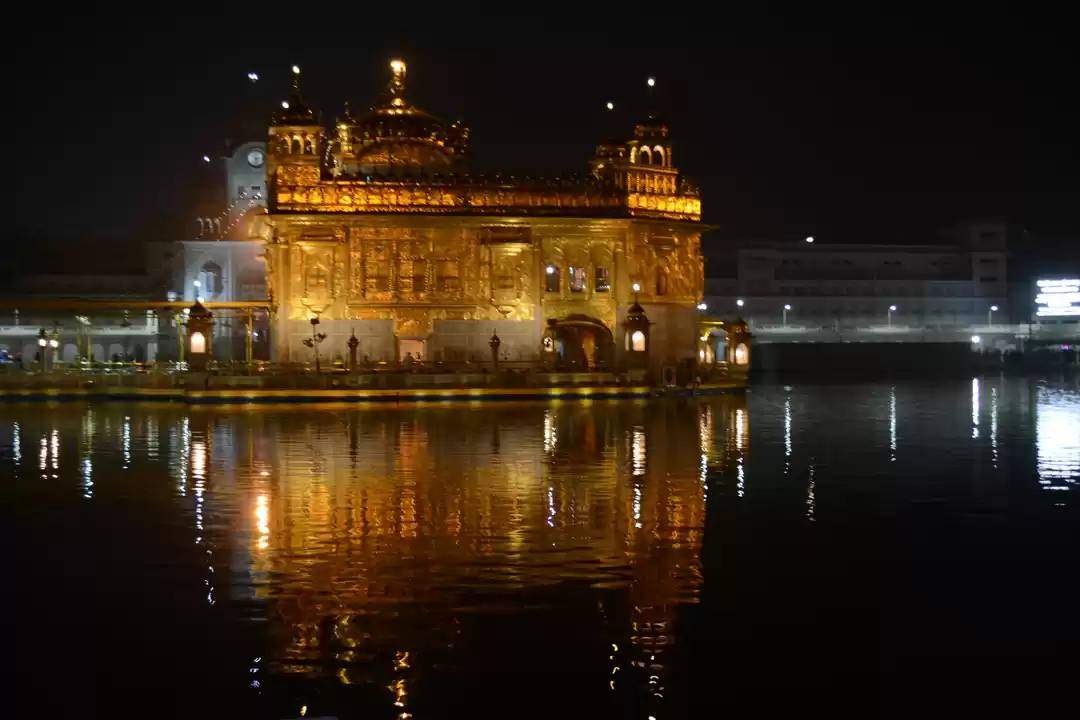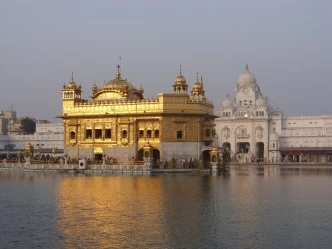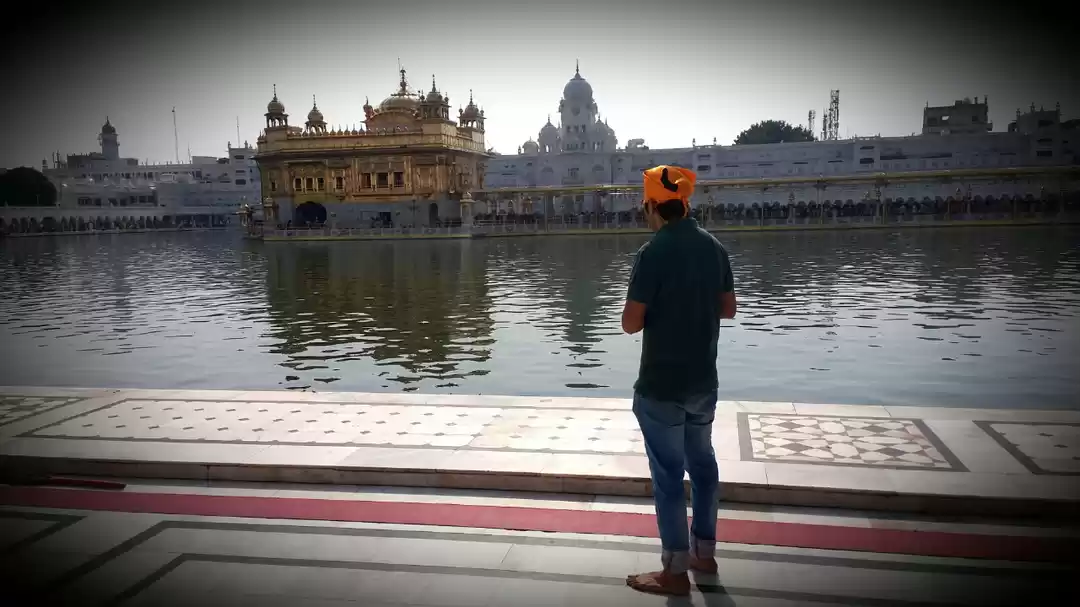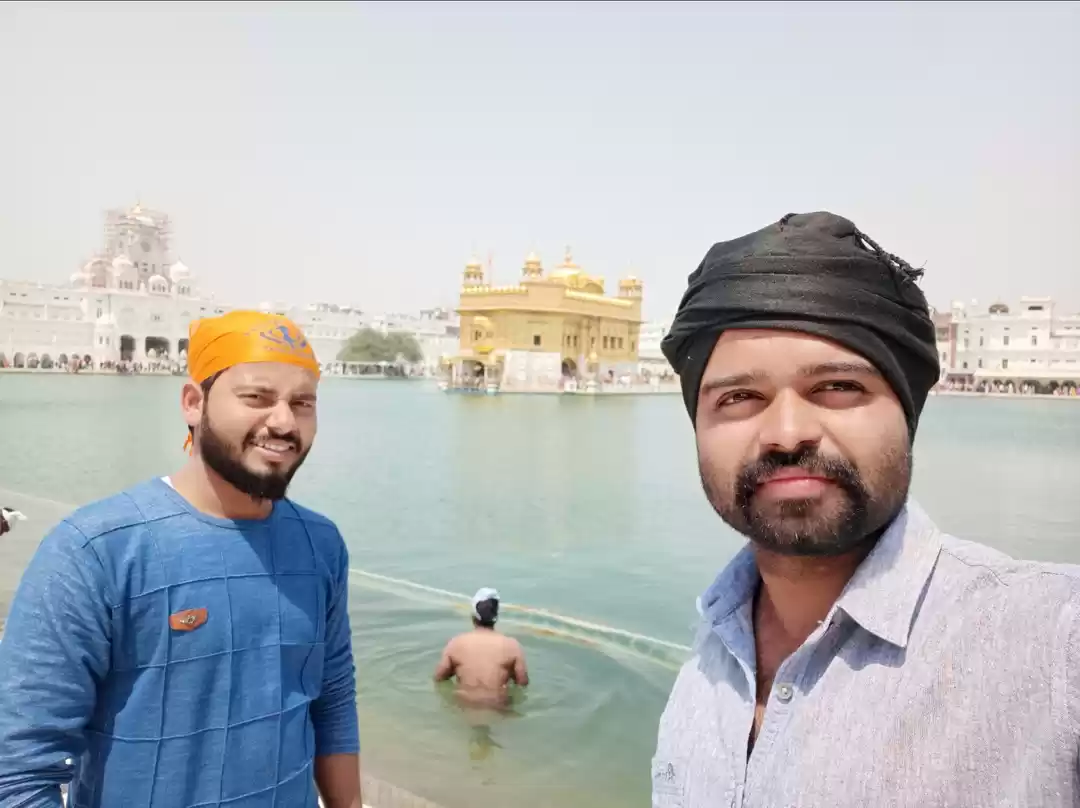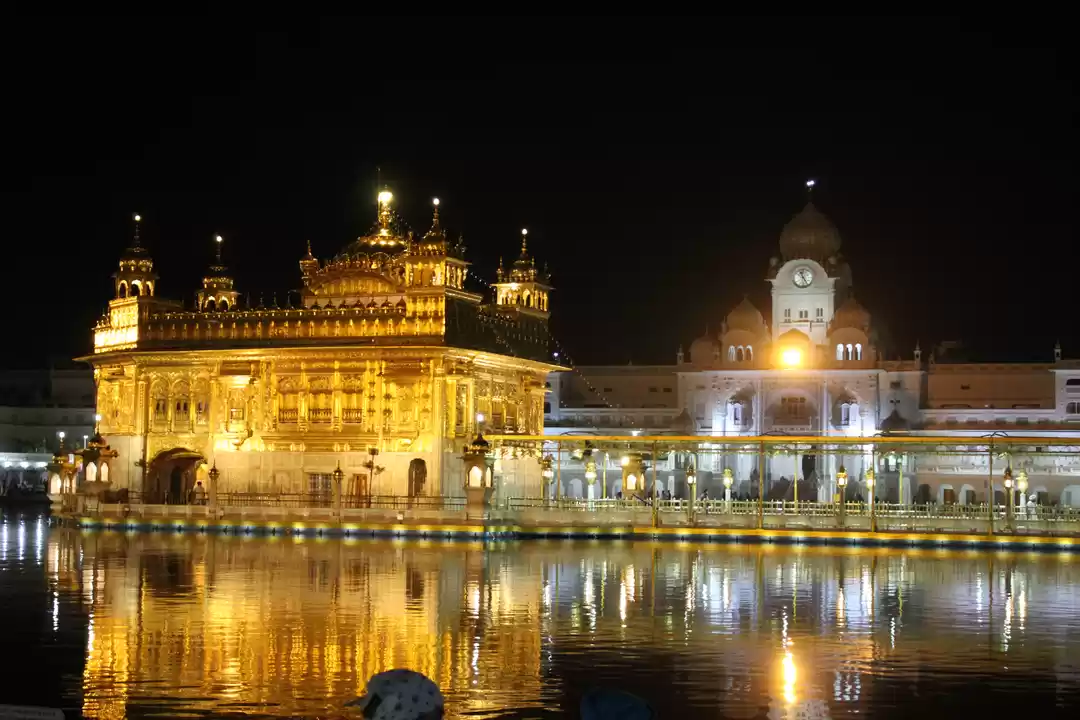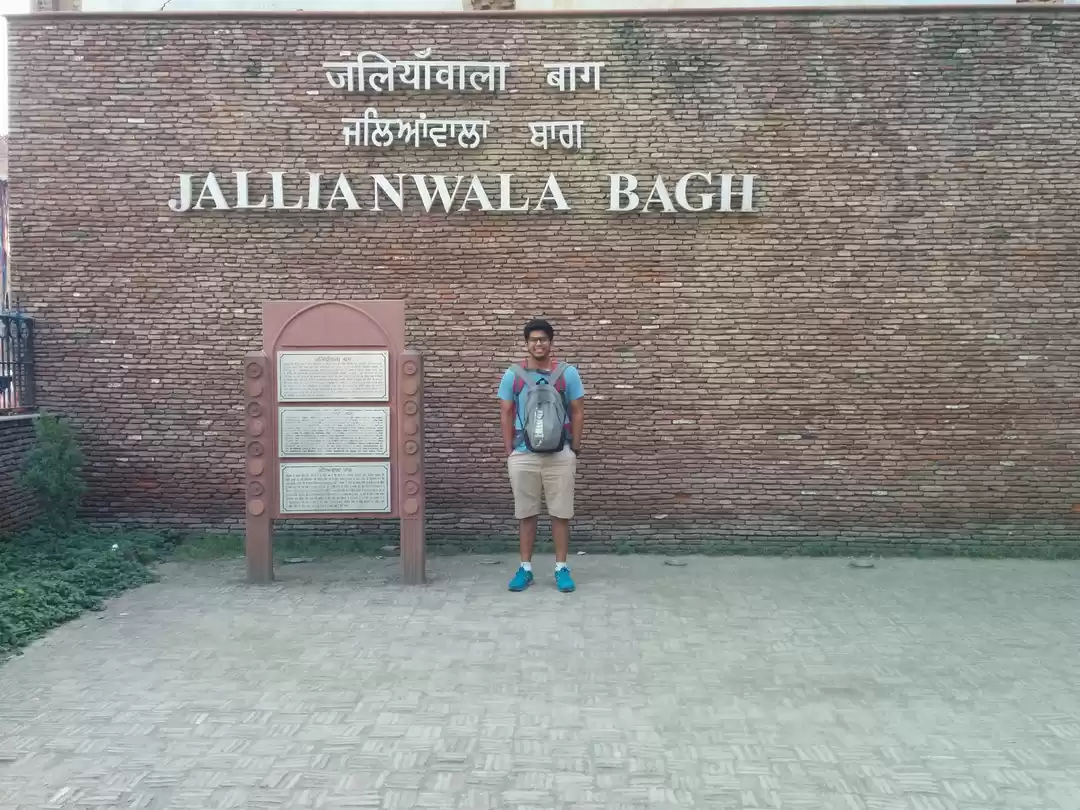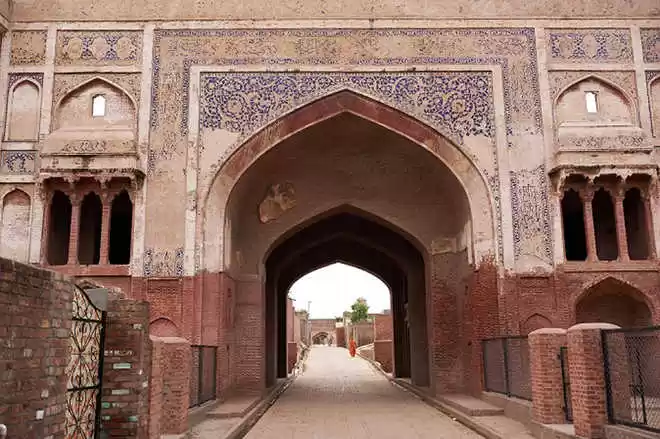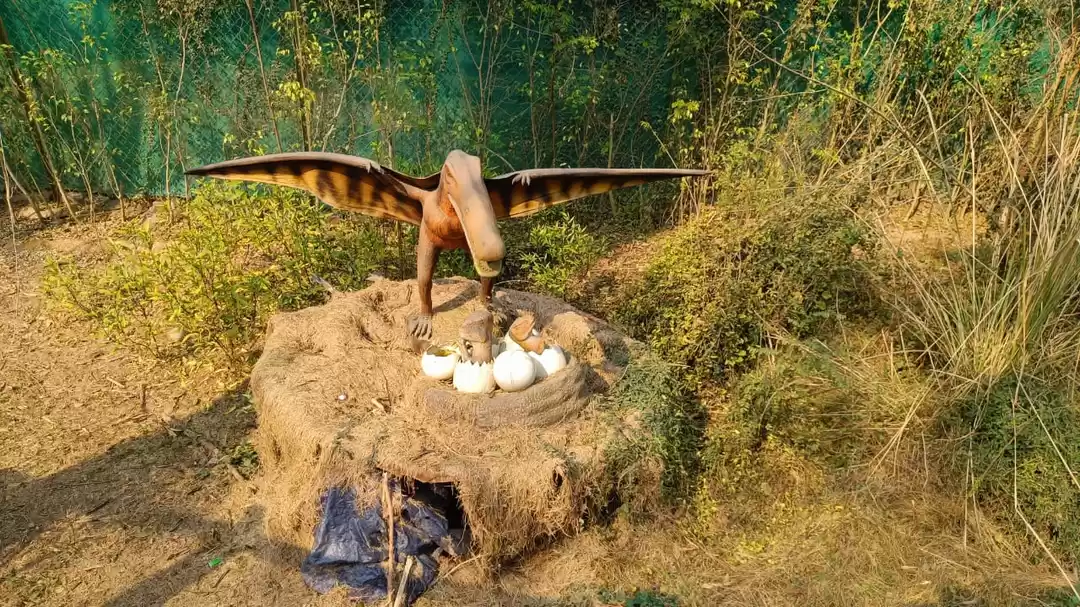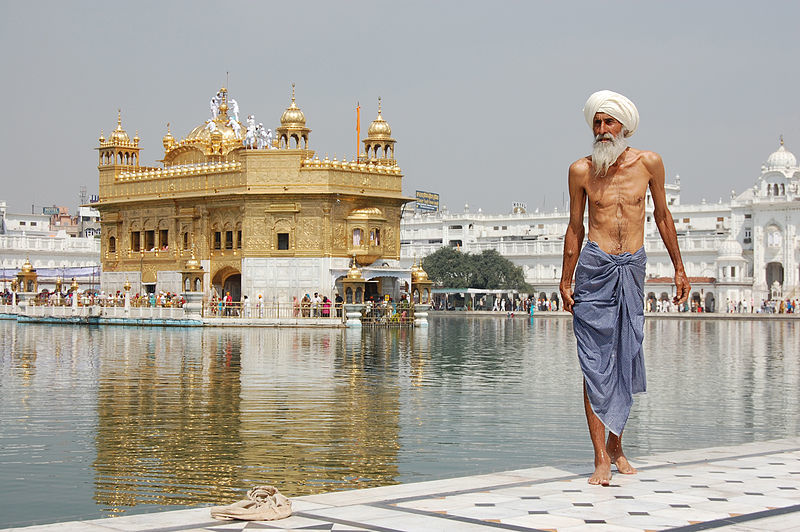
Amritsar, the holy city of Our Nation, is the heart and soul of Sikhs. It was once known as Ramdsapur. Ramdaspur was the historical name of Amritsar. Ramdaspur has its place in the Indian history of Sikh Masters.
The city Ramdaspur was named after the 4th Sikh Master, Guru Ramdas Ji who laid its foundation 440 years ago. To pay homage to this Brave Sikh master, the Sikh community celebrates its founder's birth anniversary on October 7 every year.
Historical Relevance of Amritsar
The Name Amritsar has a brief history behind it. The 4th Sikh Master, Guru Ramdasji built a lake called Amrit Sarovar in the village Tung.
Guru Ramdas Ji believed that the waters of this lake have healing powers, thus it was named as Amrit Sarovar ( Sacred Waterbody). And that is how Amritsar takes its name from it.
Amritsar is a city in the northwestern Indian state of Punjab, just about 28 kilometers from the border of Pakistan. Amritsar along with Lahore was the largest city of Punjab before 1947.
After the partition, Lahore went to Pakistan while Amritsar became a part of Punjab. Now Amritsar is the largest commercial and religious city of Punjab.
That was all about the Historical background of this Amazing devotional city. Now I would like to head-on with some useful insight into this place. Frankly, it has always been my favorite part.
I feel like I am just interacting with my friend who is sitting next to me holding a cup of coffee and is eagerly waiting for me to start with my story. So not to keep you my favorite people waiting, let me begin.
Getting There: How To Reach The Sacred Land Of Amritsar
This Golden City is easily reachable through all modes of transportation, be it air, road, and rail.
People came to visit Amritsar across the globe. For that matter, this location has been made accessible to people from different countries.
As per the report of the Punjab tourism survey, every year more than 3 cr tourists come to visit Amritsar. This huge flow of tourists makes this place one of the most significant major tourist attractions of Incredible India.
Being a traveller what could be better than a hassle-free trip and I can consider a trip to Amritsar as the one. The connectivity through all means of transport is enough to prove that. Amritsar Airport which is popularly known as Sri Guru Ram Das Jee is an International Airport.
The Aiport is only at a distance of 10 kilometres from the city. And if you are an impatient traveller just like me, then you can simply take the taxi and head on to your exploration which starts from the city and can end to whichever place you have marked as your last.
By Air:
As I mentioned earlier that the Amritsar airport situated at a distance of 10 km from the city, is well-linked with the rest of the world by its comprehensive network of flights.
This also makes it the largest and the busiest airport in India. Regular flights are being offered by our major cities such as Delhi, Mumbai, Chennai, Bangalore, and Srinagar.
Apart from this, the international airlines namely Air India express, Scoot, Malindo Air, Qatar Airways, Uzbekistan Airways operate flights for Dubai, Kuala Lumpur, Singapore, Doha, and Tashkent. Tourists can simply hire a taxi or take a bus to reach out to their target place.
By Road:
If I have to choose my route to reach this astounding city then it will not be Road as I have car sickness but that is about me. But for you my fellow travellers, this will be unthinkable as the most user-oriented and relatively cheap way to travel to Amritsar.
The city is well joint with other several cities of India and majorly with other northern cities. And now I can not resist myself saying Awesome !!!! I mean this connectivity to all these northern gems of Indian makes me say that Because I and my fellow (the one reading this blog) travellers can easily cover all this in one go.
There are bus services available that connects Amritsar with Delhi ( 460kmDharamsala(186km), Dalhousie(176km), Jammu(200km), and Shimla(315km ).This beautiful city is located on the historic Grand Trunk Road (G.T Road).
The GT Road Captally known as NH 3 earlier named as NH 1 connects Amritsar to other parts of Rest India. The NH 3 is linked with NH 54, NH 354, and NH 503A.
By Train:
Being a 90’s Kid I can say that, Travel by train was considered as the most popular and most preferred way to reach any destination in India. And I am not saying that it is not popular anymore but the number is less as compared to that time. Amritsar Railway station is the main Terminus Station.
The Amritsar Station is well-linked with all the other major cities of Punjab along with rest other Indian cities and towns. From here every day several trains run regularly to different parts of India including Delhi, Mumbai, Hyderabad, Agra, Ahmedabad, Kolkata, and Chandigarh.
It has a connecting railway line to Pakistan. It will take 6 hours of a train journey to reach Amritsar.
Best 5 Places to Visit In Amritsar:
For a traveller, this is one of the toughest choices to make as we all know that we people intend to explore every part of a place. But we are human and time is a constraint for us which compelled us to use it wisely.
Regardless, we can still make up to this by choosing the best spots. And for that matter, I think that I might be of little help in deciding the top spots.
There are many Prime places in Amritsar where you can expect the best sightseeing during your stay in Amritsar. This place is a perfect blend of Modern as well as traditional culture.
A place where you can see where culture meets modernization, it is the largest urban area of Punjab. So these combinations give you so many options to choose from the historical as well as the modern places in Amritsar. So let us get on with this.
1.The Golden Temple: The Golden Heart of Amritsar

“Harmandir Sahib “ is the official name of the Golden Temple. Golden Temple is the most Worshiped Gurudrwa of our country. This Temple is the emblem of prestige, harmony, and equality.
People from across the globe visit this temple to seek spiritual solace and blessings. Golden temple inherently contributes to the rich history of Punjab. This golden heritage is the holiest pilgrimage of our Sikh brothers.
The Gurudwara was built around a man-made pool which we historically know as Amrit Sarovar.
Golden Temple is a uniformed blend of Architecture, warm hospitality, and captivating peace. The elaborative architecture with flashy golden walls and exhilarating designs is eye-catching.
The pool repeatedly gives you an illusion that the Dazzling Golden Temple is floating in the water. And that is what I metaphorically mentioned as “Magnificently manmade magical monument “.
Tourists can easily reach Golden Temple from the Amritsar railway station as it is located at 2km away from the station. The common means of transport such as cars, taxis, private and public buses are easily available from the temple and to the temple.
If you guys are planning a trip to this Astounding Devotional place any time soon? Then you should definitely read these facts listed below:
Interesting yet unbelievable facts about the Golden Temple:
1.Lord Buddha’s short-lived Meditational site :
There are records which show that Lord Buddha once stayed at the sacred site of Golden temple. The beauty of this temple was even much more mesmerizing as it was all surrounded by thick forest.
Buddha declared this place an ideal meditation ground for Saints and Sadhus. Only a few people are aware of this.
2.Renamed after a gold coating:
Mostly we all Indians and now the people from another country as well know this fact. After the saddening death of Guru Gobind Singh Ji, this religious place was relentlessly attacked by the notorious Ismalic Rulers.
Additionally, this religious heritage was entirely blown away with gunpowder. After this devastation, Maharaja Ranjit ( A brave Sikh Ruler) rebuilt this rich heritage with marble and adorned it with gold. Hense Renamed it as the Golden Temple.
3.Baba Deep Singh Breath his Last Breath in the Golden Temple:
Baba Deep Singh Ji is revered as one the most hallowed martyrs in Sikhism and as a highly religious person. He vowed to take his last breath at Sri Harmandir Sahib.
This brave man fought with Five thousand men and in this fierce battle, his head was separated from the body. But this did not stop him as his conviction was his courage so he held his head with one hand and gallantly fought the enemies.
4.An Unprecedented Much Idolized Illustration of Hindu and Mughal Construction:
The Well Crafted Golden Temple is a rare composition of Hindu and Islamic art and architecture.
Major Cole described it as an adaptation of Mohammadan styles, flavored with a good deal of Hindu tradition. Percy Brown considered it to be a product of the synthesis of Hindu and Muslim influences, combined with elaborations that imparted it an appearance of its own.
The holy place is decorated with Marble sculptures and paintings that look identical to the Taj Mahal. The Domb is fully coated with gold and the Gurudwara too is protected with gold panels.
5.Structured Beneath the Ground:
Golden Temple is set up below the ground level, the stairs leading to the shrine go downward. And the first floor of the temple is engulfed in water and is only visible during kar seva.
The whole design of this holy place is quite distinct from the Hindu temples, as our temple is always situated in a higher area than the surroundings. Thus, this ground-level construction symbolized a Humble living.
6. The Construction carried on for Four Good years:
There is a famous saying “ Good things take time “, and the Golden Temple is a living example of that. The renovation work of this iconic golden temple took place in the year 1990 and it was wrapped with 500 kilograms of gold.
The purest form of gold 24 karat was used in the coating which values 130 crores as of today. Artists from all the corners of India were called for this work. It is believed that the glory of the golden temple will reach the 25th century.
7.Worlds Massive Community Kitchen:
The golden temple is the largest free kitchen in the world which makes it pride of India. Nearly 100,000 people eat here on an average day for free. Who says there is no such thing as free lunch?
Well at least in India no such thing exists. A meal of this scale is one of a kind example of devotion and dedication towards feeding mankind. The langar, as it's called, never closes and even at late night, pilgrims will stop by for a meal.
When it comes to food consumption, the Sikh Guru introduced a revolutionary idea which was simple enough: A place should exist where everyone, regardless of religion or social status, could sit on the ground together as equals and eat the same food. Golden Temple is a living example of equality.
Things To Keep In Mind Before Visiting The Golden Temple:
Remove your shoes before entering the temple complex.
Wash your feet in a small pool of water at the entrance.
Keep your head covered at all times – the gurdwara provides a head covering for those who have not carried a scarf.
2.Wagah Border: A Symbol of Partition and Patriotism

Wagah Border is a line division between Indian and Pakistan. It was planned, decided, and placed during the partition of Pakistan from India in the year 1947same year when our Nation got independent from the United Kingdom. The border is situated 600 meters east from the Wagah Village.
Wagah village is a union council located in the Wagah Zone of Punjab, Lahore, and Pakistan.
It is 24 kilometers away from Lahore and 32 kilometers from Amritsar. It is only 3 kilometers away from the Attari Village that has earned its ceremony the name, Wagah Attari Border Ceremony.
There is no entry fee to this place. The gate remains open from 10 Am to 4 Pm. The Phenomenal Ceremony starts at 4 pm and continues till sunset. The ceremony attracts 2000 people daily and more on weekdays.
The Flag lowering ceremony conducted every day is called the “ Beating Retreat Ceremony “. It has been led by the Indian Border Security Force ( BSF) and the Pakistan Rangers since 1959. This remarkable ceremony is conducted by both the forces daily regardless of the weather and situation.
Beating Retreat Ceremony is the sign of both Rivalry and brotherhood between the two countries in an unimaginable way. The Ceremony reminds us that despite tension and bitterness between the two countries, at the end of the day before the sun sets, both the countries share similar history and Culture.
When we people witness such a ceremony then our feeling of patriotism as well brotherhood reaches another level.
Undiscovered Facts about this Nation's Pride called "Wagah Border"
The only land surface crossing between the two countries.
Michael Palin was compelled to describe this Flag ceremony after filming it as” Carefully Choreographed Contempt”. It is considered the best description is given by far.
Despite all the intimidation, eyeball to eyeball staring and untamed warlike behavior, at no point during this 45 minutes ceremony, is there any physical contact between the two forces. The only physical contact is a polite handshake between both sides at the end of the ceremony when the flags have been drawn down.
Both Indian and Pakistan soldiers exchanged sweets on their respective festivals namely Diwali and Eid. But this exchange of gestures sometimes stops in hostile conditions.
“Th train which links Amritsar with Lahore was simply named after a Hindi word Samjhuata which means “ Understanding”.
Surprisingly, the color of the uniform worn by the porters of both countries is the same as the uniform of their cricket team. Porter on the Indian side wears the Blue uniform, whereas porters on the Pakistan side wear green uniforms.
Patrons eat their last meal at Sarhad Restaurant which is a kilometer away from the Wagah Border and it promises to offer them a taste of Amritsar and Lahore.
Mobile Phones may not work at Wagah being a sensitive area, jammers are used to prevent mobile working. Although tourists are still allowed to take pictures.
This unequalled Wagah Border and the groundbreaking ceremony makes it as the second most prime location of Amritsar.
3.Akal Takht: “A throne of Timeless one” In Amritsar

Akal Takht is originally known as Akal Bunga. The world Bunga is derived from the Persian word “Bungah” which means dwelling places.
In the Sikh traditions, the word especially refers to dwelling places and mansions which grew up around the corner. The Building is directly opposite to the Golden Temple. It was founded by the sixth guru, Guru Hargobind.
Akal Takht is a symbol of political supremacy in Amritsar and where spiritual and non-spiritual concerns of Sikhs are addressed. Akal Takht is one of the five takes of Sikhs located at Harmandir sahib Gurudwara in Amritsar.
Similar seats of the authority are located at Anandpur and Talwandi Sabo (close to Bhatinda) in Punjab Only, Patna in Bihar State, and Nanded in Maharashtra state.
This Throne of God too was badly damaged during the assault on the golden temple by the Indian Army in 1984. In due course, the building was rebuilt.
As it was a center for jurisdiction then, decisions were made annually and semi-annually meetings at Amritsar, when groups would assemble behind their elected leaders in the open area in front of Akal Takht.
Resolutions which were carried on then became Gurumatas( Decision of the Guru)and were binding on all skills. It was until 1809, when Maharaja Ranjeet Singh, the leader of the newly unified Sikh States, abolished political gurumatas and began to seek counsel from both Sikhs and non-Sikhs.
The decisions taken at Akal Takht are indicated as Hukumnamas ( orders) and are considered mandatory for all Sikhs. Akal Takht can be recognized as the single political as well as the Spiritual legacy of Amritsar.
4.Jallianwala Bagh: Remembrance of one of the most brutal events in Indian History
Regardless of the time, still when we Indian heard the word “ Jallainwala Bagh” then our eyes filled with tears and we compelled ourselves to question humanity. “Jallinwala Bagh “ is one of the most visited places in Amritsar.
Built-in the memory of innocent people who died in the Jallianwala Bagh massacre is a memorial of National Significance situated in Amritsar.
Also known as the Massacre of Amritsar, incident on April 13, 1919, in which British troops fired on a large crowd of clueless unarmed Indians in an open place known as Jallianwala Bagh in Amritsar in the Punjab Region.
This Heinous incident happened on the day of Baisakhi ( The harvest festival of Sikhs) and is perhaps an unforgettable massacre for all Indians.
This 7acre garden complex is located near the Golden Temple and a large number of tourists across the globe visit the place.
The place is open throughout the week and is entry free and Visiting hours start from 6:30 am to 7:30 pm. The memorial was established in 1951 to honor the martyrs of this fateful day.
The Shameless incident has turned Jallianwala Bagh into a National Pilgrimage site in Amritsar.
Even though the place has been transformed into a beautiful garden, one can still see many structures related to the massacre inside the well.
Speaking about the wall, the well inside the Jallianwala Bagh is the most prominent part of this Park. The reason behind, many helpless people jumped into the wall to save their lives and then died inside the well.
Things to see in the Jallianwala Bagh:
The wall section which bears the bullet marks.
Well in which people had jumped on that day to escape the firing.
A semi-circular veranda that evident the spot from where the British troops fired at the people.
Flame of Liberty, built in honor of the martyrs.
Martyrs Museum.
Amritsar remains the atrocity British can not be allowed to forget. Though this holy city was attacked several times, the Jallianwala Bagh was the most brutal attack in the history of Amritsar and India.
5.The Old City Bazar: A spendthrift Travelers Paradise.
Here I used the word spindrift to grab the undivided attention of shopaholics and who loves to buy traditional handmade stuff.
And now we are talking about this shopaholic community so let me proudly tell you, my fellow travellers, that I am too one of them. This old city bazaar is the best place to shop for such traditional stuff in Amritsar.
The Bazar is located in the old city of Amritsar and it is quite a unique place on its own. I guess in any traveller's itinerary, the journey always ends at the shopping spots of any place.
And despite being a heritage holy city Amritsar offers you many amazing shopping markets. The old city Bazar is one of the most among them.
This busy and crowded bazaar starts in the morning around 9 Am and keeps open till 7 pm. The traditional specialty of this market is the juttis, Bangles, and Traditional garments.
The market offers everything you might want to take home. To add to it I would say that if you want to explore the true beauty of Amritsar, then this old Bazar is the place for you.
The old city bazaar is flooded with things you would want to buy, you can find anything you want to take away from Punjab. This Bazaar not only offers these tempting beautiful ornaments it also gives you a chance to see this uncanny beauty of the Old City.
Most Frequently Asked Questions About Amritsar:
1. Which is the nearest airport to Amritsar?
Amritsar Aiport(ATQ) is the closest airport to Amritsar. The airport is just 11.3 km away from Amritsar. Apart from ATQ, Jammu (117 KM)and Chandigarh (211 KM) are the second nearest Airport to Amritsar. But as I have mentioned, there are many ways to reach Amritsar and you can decide among them.
2. Amritsar Tourist Spot?
Besides the Major prime location, I have introduced to you earlier, there are several other tourist spots as well in Amritsar. Let me start with few names, Maharaja Ranjit Singh Museum, Hall Bazar, Partition Museum, Dukh Bhanjani Ber Tree, Durgiana Temple, Gobindgarh Fort, Tarn Taran Sahib, Khalsa College and many more.
3. Which are the Top 5 Star Hotels in Amritsar?
Being a metropolitan city in Punjab, India, You can easily find 5-star Hotels in Amritsar. And the finest hotels from that list are Taj Swarn Amritsar, Holiday Inn Amritsar Ranjit Avenue, Radisson Blu Hotel Amritsar, Ramada by Wyndham Amritsar, and Fairfield by Marriot. You can check the necessary details on the Meta Searches while booking the hotel.
4. How is the climate in Amritsar?
Amritsar stands 232 m above sea level. Here it is recognized as a local Semi-arid Climate, which has a geographically normal range of rainfall throughout the year. Besides the rainfall, the average annual l temperature is 23.3 °C. That means the temperature is not too hot to bear round the year except in June where the mercury goes by 32.8 °C.
5. Best places and Food To eat in Amritsar?
Well!! This is something which I can relate to and if you guys too are a big-time foodie like me then this information will be something you are looking for. So let's dig in !!!
Aloo wale kulche - you can find it all across Amritsar but Darshan Lal at Ghala Mala Chowk and Kulcha Land in Ranjit Avenue serves the most tempting Aloo kulchas.
Dal Makhani - Went to Punjab and have not tested Dal Makhani then what else you were doing? Dal Makhani with Laccha Paratha is the divine teste of Punjab. You can find the most incredible Dal makhani at Kesar da Dhaba and Bhanwar da Dhaba.
Pede wali Lassi - The most delicious beverage in Amritsar. Thakur Gian Chand Milk Bhandar serves the authentic Punjabi flavored pede wali lassi in Amritsar.
Amritsari Chole Puri - Punjabi Chole is world-famous so how can I forget to mention this delightful treat which you will only get in Amritsar. To be honest, every chole puri which is served in the whole Amritsar is the best but some places are uncomparable and Seetla Mandir, Kanaiyalal on Lawrence road has topped that list.
Amritsar is a place where the tradition meets modernity and it is correct to say it as the above astounding and rare places in this golden city is enough to prove that. I feel I have given enough reason to you guys to put Amritsar in your Bucket list. So take out your backpack and head out to this beloved city of India.
--a Guest Post Submission By Avinash Rajput
@https://www.himalayan-gypsy.in/
You may also like to read: durgiana temple amritsar



